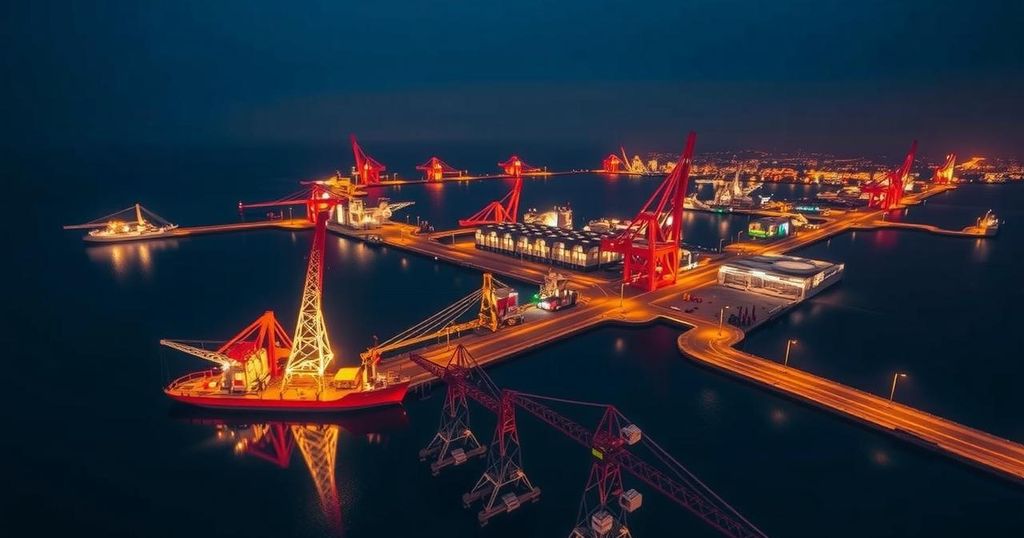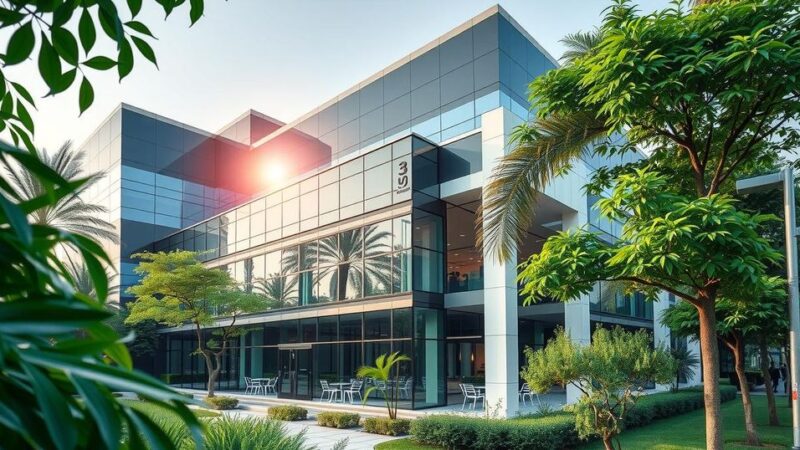Manara Minerals, a partnership between Saudi Arabia’s Public Investment Fund and Ma’aden, is negotiating to acquire a stake in First Quantum Minerals’ Zambian copper and nickel assets, valued at $1.5 billion to $2 billion. This move follows First Quantum’s recent financial struggles and aims to enhance its debt management while maintaining operational control. Meanwhile, Zambia’s mining sector, rich in copper, faces significant challenges due to infrastructural and energy supply issues.
Saudi Arabia’s Manara Minerals, a joint venture between the Public Investment Fund (PIF) and Ma’aden, is poised to acquire a stake of approximately 15% to 20% in First Quantum Minerals’ Zambian copper and nickel operations, valued between $1.5 billion and $2 billion. This potential transaction encompasses First Quantum’s significant assets, including the Kansanshi and Sentinel copper mines as well as the Enterprise nickel mine. The move is consistent with Manara’s recent investment strategy, which includes a $1 billion commitment to Barrick Gold’s Reko Diq project in Pakistan and a $2.5 billion stake in Brazilian mining giant Vale. The divestment of Zambian assets will aid First Quantum in managing its debts while still retaining control over critical operations. Following a revenue decline due to the December 2023 shutdown of its Cobre Panama mine, the company is exploring avenues for capital restructuring, including the sale of assets and a proposed $1 billion share offering. Zambia stands as a prominent player in global copper production, providing vast opportunities for mining investors, particularly as copper becomes increasingly essential for the green energy transition. In a notable development this year, a startup backed by notable billionaires Bill Gates and Jeff Bezos has uncovered one of the largest copper deposits in Zambia’s history at the Mingomba site. Nevertheless, Zambia’s mining sector is beset by significant infrastructure issues, including underdeveloped road and rail networks that hamper material transportation. Additionally, frequent power supply shortages continue to pose challenges, as the country relies on hydropower for approximately 80% of its electricity, leading to frequent outages due to drought and fluctuating rainfall. For companies like First Quantum, maintaining a consistent power supply is crucial for operations, leading to emergency imports of electricity from South Africa’s Eskom. These ongoing power issues have the potential to deter foreign investment, which is critical since the mining industry is responsible for a substantial portion of Zambia’s exports and energy consumption. The government’s ambitious plan to boost copper production to one million tons by 2026 will require overcoming these infrastructure hurdles.
The mining sector in Zambia is integral to the country’s economy, serving as a major source of exports and foreign investment. However, it faces persistent infrastructural challenges, including inadequate transport networks and electricity supply issues. Given that Zambia produces a considerable portion of the world’s copper, the effective management of its resources is essential, particularly with an increasing global demand for copper driven by the transition to green technologies. This evolving landscape makes it an attractive and strategically significant target for foreign investment, such as that from Saudi Arabia, which is eager to expand its mining interests abroad.
In summary, Saudi Arabia’s Manara Minerals is strategically positioning itself to acquire a significant interest in First Quantum Minerals’ Zambian assets amidst a complex backdrop of infrastructure challenges and the need for capital restructuring. The deal demonstrates the ongoing appeal of Zambia’s mining potential, particularly for copper, despite the operational hurdles faced within the country’s energy infrastructure. The success of such investments will hinge not only on the mining operations themselves but also on the resolution of the underlying issues affecting Zambia’s infrastructure and energy supply.
Original Source: www.benzinga.com






